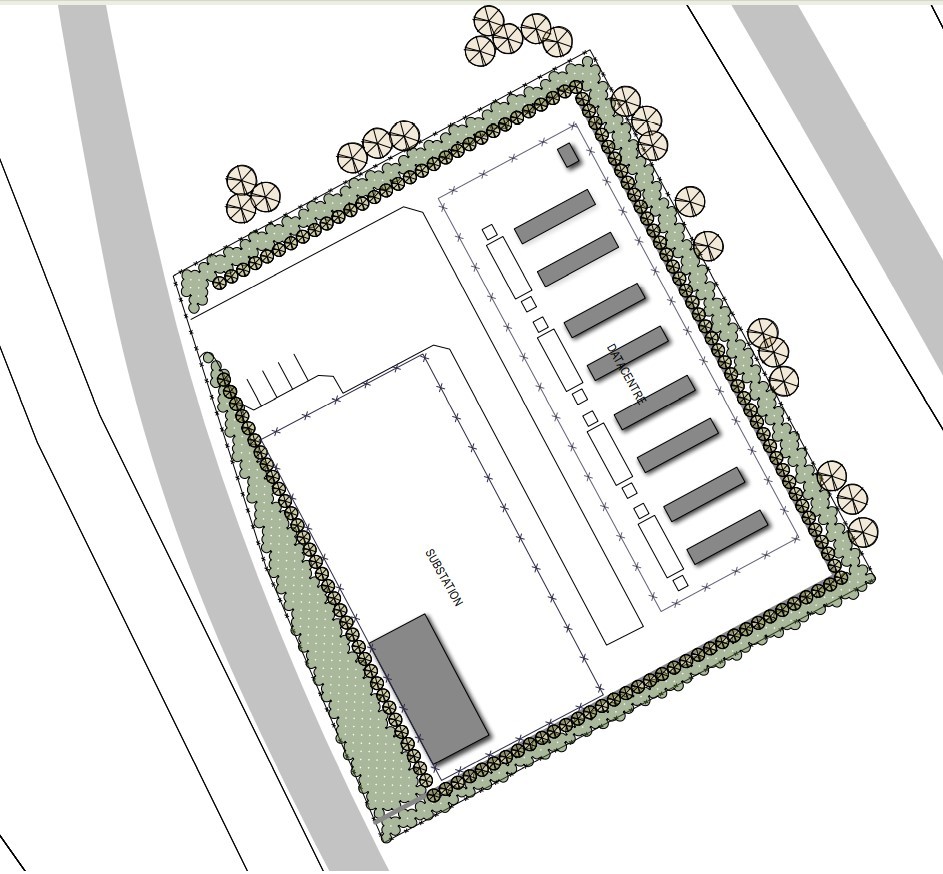Few views to be heard at Clyde data centre hearing
Jill Herron
11 February 2022, 10:54 PM
 The site of a proposed data-centre near Clyde. Source: CODC
The site of a proposed data-centre near Clyde. Source: CODC Concerns of some local residents feeling apprehensive about a slightly mysterious data centre proposal near Clyde, will not be considered at a consent hearing next week.
Contact Energy Ltd’s application for subdivision and land use consent for the project was only required to be notified to selected neighbours and Aukaha and Te Ao Marama representative groups.
Three submissions were received, all from neighbours opposing the plan.
The neighbours’ concerns centre around noise and a belief the proposal would be out of character with Clyde’s historic and tourism-orientated nature.
Next Friday, hearings commissioner Bob Nixon will review the proposal at a Central Otago District Council planning hearing.
In a report, the council’s planning consultant acknowledged concerns received from people outside the formal planning process.
“Council has received a number of comments from parties who were not notified under Section 95B.
"Comments from these parties reflected the concerns raised by the submitters and also raised concerns related to visual effects, the use of water and electricity, and questioned the potential economic benefits of the proposal,” the report by planning officer Adam Vincent said.
Contact are applying to subdivide a plot of land just downstream from the Clyde Dam, on the opposite side of the Mata-au, Clutha River from the Clyde township, into two lots.
A data centre – effectively eight containers each home to 368 servers – would be built by Contact, but owned by a third party.
The third party, understood to be UK-based company Lake Parime, would also lease the land from Contact and generally use power when surpluses were available.
A substation would also be built by Aurora Energy Ltd on the site, if that company’s related application is successful.
This would connect the centre onto the local grid and boost local power supply reliability.
The 2944 servers, which are computer hardware or software programmes providing functionality to computers elsewhere, are cooled by fans.
The fans make constant noise, but a special acoustic barrier wall, plus plantings of native and exotic species around the development is expected to muffle this effectively enough to be acceptable.

A representation of the eight-container data centre, substation, noise-blocking wall and plantings.
Each pair of containers would be linked to a docking station full of electrical equipment, but these and some small transformers would not make significant amounts of noise, the report said.
Neighbours opposing the project were worried it would produce a “constant white noise” and that noise would impact their enjoyment of their properties and their mental wellbeing.
Contact say the development would create employment for technical staff although no-one would work at site on a daily basis.
The centre’s function was to provide data-processing capacity for a fast-growing market.
“Data centre operators are looking for secure renewable energy sources to power computers that are designed to process large volumes of data to emerging markets such as machine learning, data modelling and cryptocurrency mining,” Contact’s application stated.
The latter is related to the operation of global cryptocurrency (digital-only currency) markets and the processes are energy-hungry, involving expensive hardware and software.
Council’s planners have recommended the project be approved subject to various conditions including that mature plants be sourced to screen the buildings, rather than seedlings that would take years to establish.
A date for a release of the commissioner’s decision has not been set.
Contact Energy has been approached for comment.



